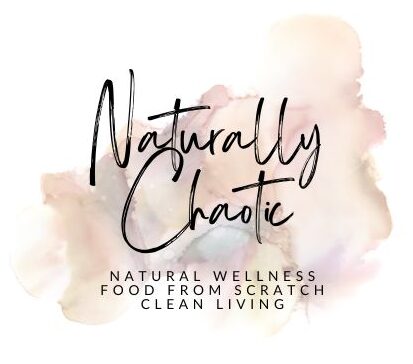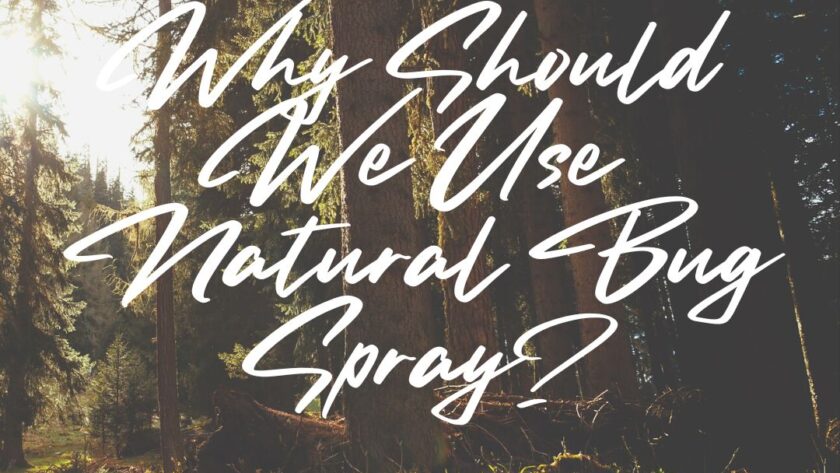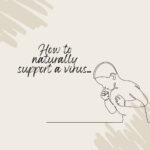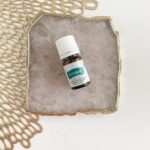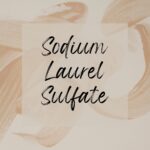Natural Bug Spray is a must in our home. I don’t know about you but we do NOT like getting bit by bugs BUT we also LOVE being outside when the weather is nice! It only made sense that bug spray was one of the first major swaps for summer we made years ago.
This post contains affiliate links, which means I make a small commission at no extra cost to you. See my full disclosure here.
Why make the swap for Natural Bug Spray you may ask?
Because the majority of the ingredients in traditional store-bought bug sprays are TERRIBLE for us!!! And considering we use it quite often, from spraying our kids down, ourselves, pets, clothes, blankets, chairs we sit on, etc… we wanted something that was safe AND effective.
The main active ingredient in most bug sprays is DEET and we need to stay as far away from that as we want to stay away from the mosquitoes. One of the best quotes I’ve seen on this said that “Deet is like smoking cigarettes, you can choose to continue to smoke, but can you pretend you don’t know it is toxic for you and for those around you?” The FDA can say it is safe all they want… but we all know I take my own path when it comes to what our family uses on our bodies.
The products we put in, on and around our bodies MATTER. They matter so much! The chemicals in traditional products on store shelves can build up in your system and can have an effect on hormones and fertility – and it can feel overwhelming to know where to start swapping things out but that is why we just need to start one product at a time. And that is where I am here to help!
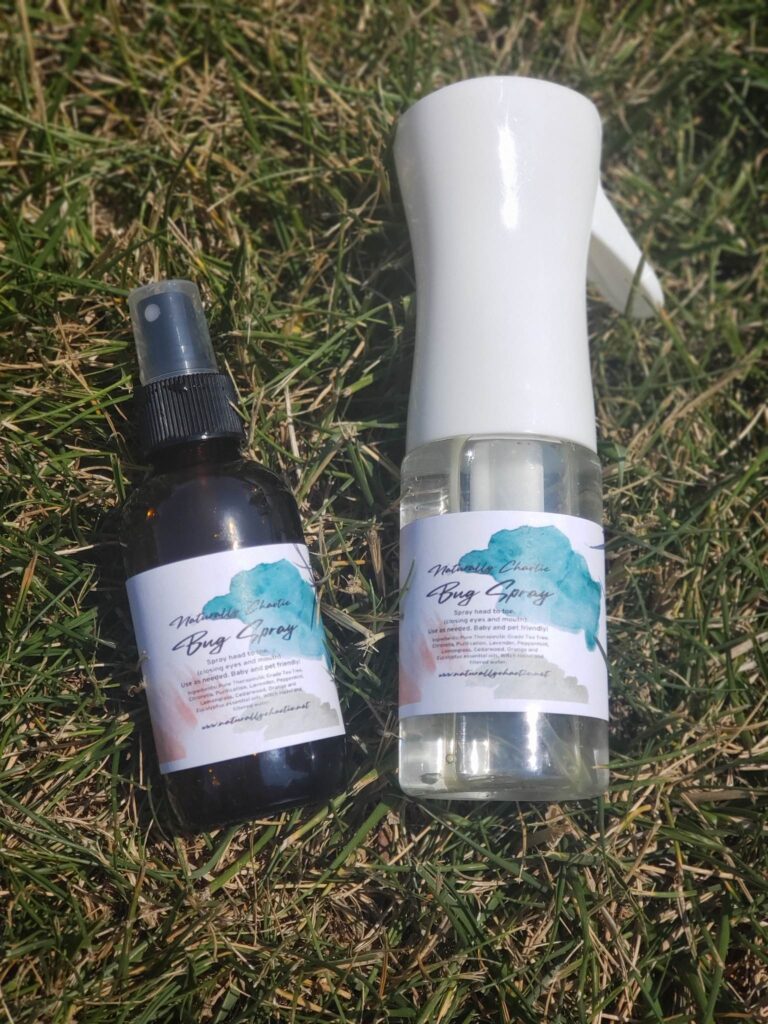
Let’s talk the DEETs!!!
Did you know DEET is a registered pesticide? It is a member of the toluene chemical family. Toluene is an organic solvent used in rubber, plastic cements and paint removers. Doesn’t that sound like something we want to be spraying all over us?
DEET can disrupt your nervous system, brain function, kidneys, liver, lungs, and skin. It can also mess with your endocrine system and can cause birth defects including long term effects on the endocrine and nervous system of unborn children… it’s crazy to think that future generations of human beings DNA can be affected by the DEET used today. Infertility and brain damage… No thanks, we have enough of that in the world to deal with.
It can also cause seizures, slurred speech, and other serious side effects. In 2013 an analysis of about 4,000 DEET-related calls to poison control centers found that 450 people needed medical treatment after applying. Why is this necessary?
The label states to keep it away from eyes, ears and mouth. But how??? If we are spraying it, it is now airborne which means we are breathing it in. It will find its way in your mouth and eyes. Whatever we put on our skin goes straight into our blood stream and isn’t even processed through our system which was created to filter out some of the junk we do ingest.
DEET is considered a hazardous material and it is restricted in certain countries… so why is it allowed here? Makes ya go “hmmmm”, huh?
Besides the DEET, there are other ingredients that can cause serious issues.
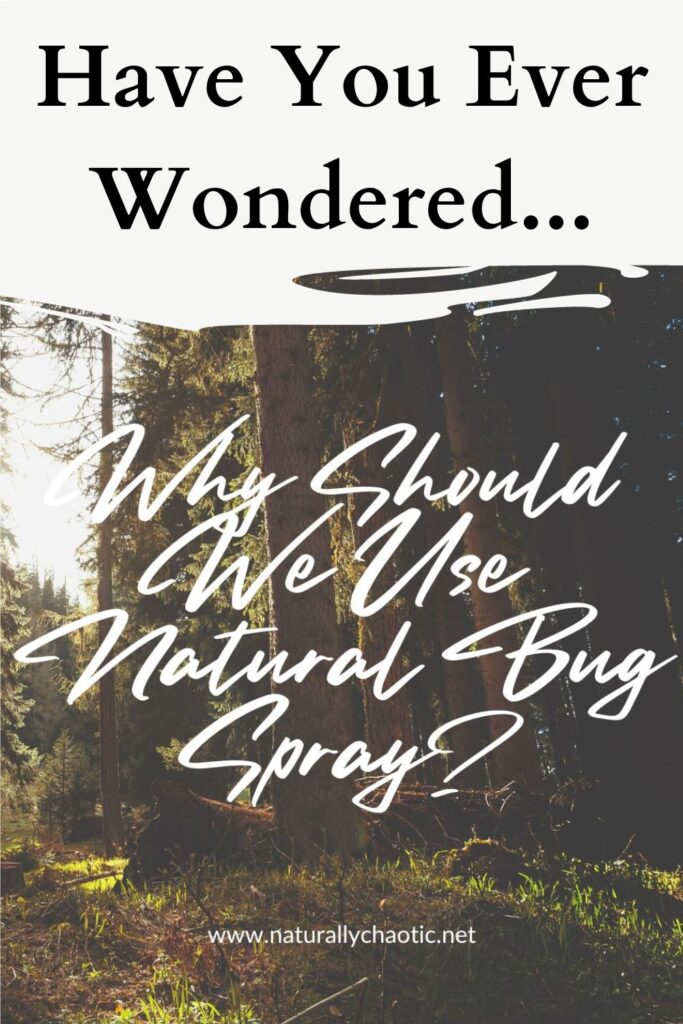
Inactive Ingredients to stay away from…
Butane, Propane and/or Isobutane Propellants. You do NOT need to be breathing these things in. They are TERRIBLE for the respiratory system, can irritate the nose and throat, cause dizziness, irregular heartbeat, can cause brain damage and can be cardiotoxic.
Fragrance is listed which has it’s own hazards since anything can be hidden under the “fragrance” label.
Permethrin is a synthetic pesticide and is linked to neurotoxicity and can cause nerve impulses. At high levels it can result in seizures, learning and memory issues. This one is also toxic to aquatic life and bees.
Cyfluthrin can accumulate in fatty tissue and has been linked to neurotoxicity, nerves and behavior changes. It has also shown harmful effects in blood, including red blood cell changes, disruption of liver function and behavior changes after exposure in the womb. It is also harmful to aquatic life and honeybees.
Pyrethroids are the most common chemical class for bug repellants and they also love fat cells. They can easily cross the blood-brain barrier and can become toxic to the nervous system. These can cause dermatitis and asthma-like reactions, nausea, incoordination and burning and itching sensations. These have been linked to endocrine disruption and some have been classified as possible carcinogens.
So if you, your kids, your family, anyone battles asthma or respiratory issues, eczema, hormone imbalances, or honestly any symptoms from anything mentioned above this would be a good option to look at for a natural swap.
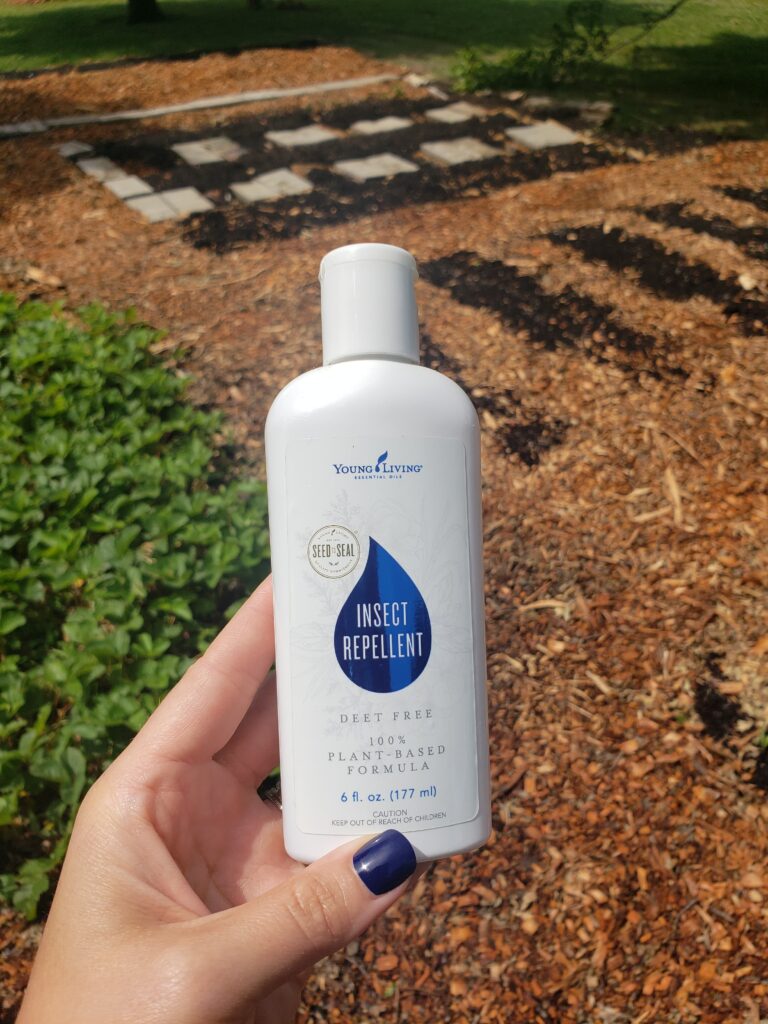
So what are good options for Natural Bug Sprays?
The best news though is that you don’t have to spray all of those ingredients all over you to keep the bugs away. There are clean options out there, you just have to do the research and read, read, read the ingredients! Natural Bug Spray can work wonders!
We love being outside but we hate the mosquitoes, ticks, flies, knats, etc… I have a DIY repellant that I have made for years that even smells amazing or I have one that I purchase and hack to keep in all the places!!! Both work SO good!!!
One of my favorite things about these two are that they cover so many areas/bugs. Certain bugs dislike certain oils which is why it’s important to use such a variety of oils. We want to keep as many bugs away as possible!!!
Have you made the swap yet? You can follow along on more of our day to day with us on Instagram @naturallychaoticlifestyle!
I am by no means a doctor, I am just a Mama who loves finding natural options for her family. My education on oils is how our family has used these over the years and the benefits we have seen. You are the gatekeeper of your home and know your family so please keep that in mind while following us on this journey. Also, when speaking about essential oils, we use Young Living in our family and have for over six years. These are the oils that I have researched and feel comfortable with for our family and not all oils are created equal.
